In this article, we examine the history of nectarine and its different types. In fact, nectarine look like peach, but with a natural mutation, with the exception of one gene that causes the peach to be hairy and the surface of the nectarine to be smooth.
History of Nectarine and its different types
Although its botanical name “Prunus Persica” refers to Iran, genetic studies show that nectarine originated in China. Until recently, cultivation thought to have begun around 2000 BC. But recent evidence suggests it was in China’s Zhejiang Province in 6000 BC.
Nectarine spread from China in West Asia to Iran, where they were grown. Nectarine was introduced from Iran to Greece and Rome. It spread to northern Europe and England until the sixteenth century. Nectarines were brought to the United States by the Spaniards and planted in California.
Nectarine trees should grow in areas with cool winters. Naturally, the nectarine tree is about 40 years old and can grow up to 9 meters in height. However, in gardens, trees keep at a height of about 4 meters to make them easier to harvest. The fruit picks when it is not fully ripe, so it can take to grocery stores across the country.
Different types of Nectarine
Learn about different types of nectarine grown around the world. Learn how each type has its own unique color, taste and characteristics.
Stark Sunglo Nectarine
Songlu nectarine has high quality fruits which is why it is famous as the nectarine queen. The fruits of this type of shellfish are bright red with firm and yellow flesh, which has an amazing taste.
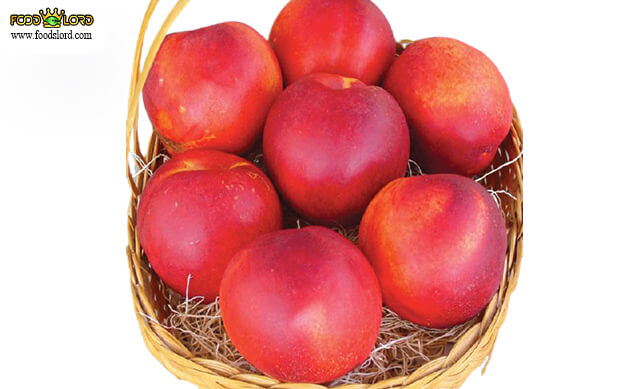
Double Delight Nectarine
Double Delight tree has yellow bark (dark red bark when ripe). These species are also one of the best nectarines you can see on the market. Double Delight nectarine fruits are medium in size and have a very sweet taste.
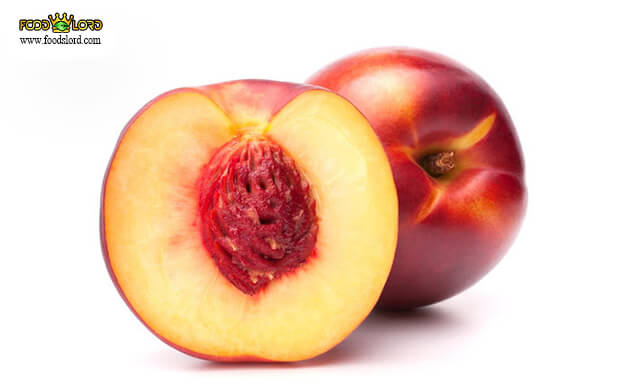
Fantasia Nectarine
This type of nectarine tree has large, oval fruits with yellow and red bark. On the other hand, Fantasia nectarine has a yellow flesh with a spicy and sweet taste.
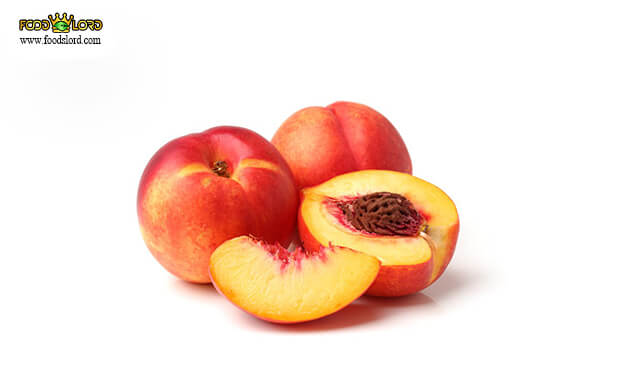
Desert Dawn Nectarine
Desert Dawn is famous for its good harvest because its trees produce a lot of fruit. The yellow flesh of this type of nectarine is very juicy and has a wonderful taste. Fruits are usually harvested from mid-to late May.
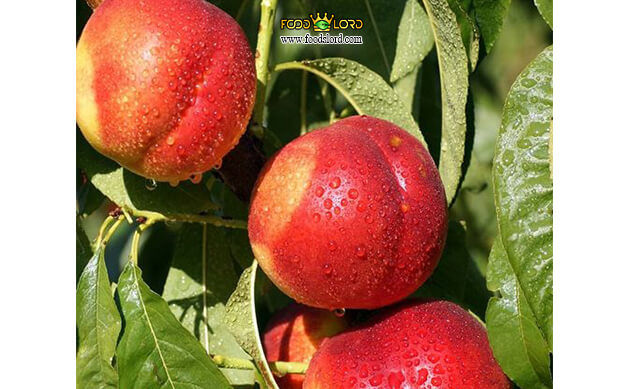
Le Grand Nectarine
The Le Grand nectarines are very large compared to other nectarines. Its skin color is yellow and a little red can be seen on it. While its flesh is orange and red. This nectarine has a firm texture and a delicious taste.
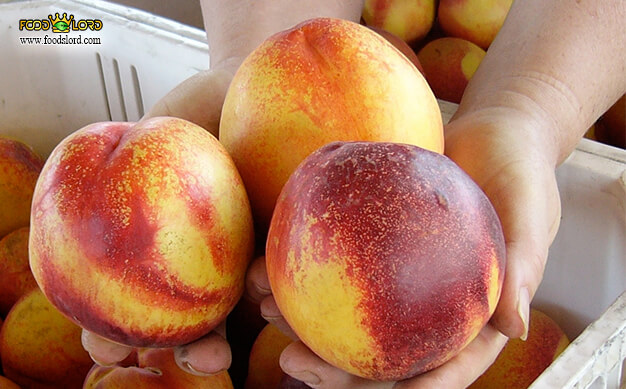
The largest Nectarine producing countries in the world
- China 14,469,004 tons
- Spain 1,529,919 tons
- Italy 1,427,573 tons
- United States 927,178 tons
- Iran 863,922 tons
- Greece 847,990 tons
- Turkey 674,136 tons
- Chile 337,402 tons
- India 287,778 tons
- Egypt 266,628 tons
Nutrition fact of Nectarine in 100 g
- Total fat 0.3 g
- Saturated fat 0 g
- Unsaturated fat 0.1 g
- Cholesterol 0 mg
- Sodium 0 mg
- Potassium 201 mg
- Total carbohydrates 11 grams
- Dietary fiber 1.7 g
- Sugars 7.9 g
- Protein 1.1 g
Dried Nectarine
Dried nectarine has a sweet taste with a dark orange-red color and chewy texture which is rich in fiber, vitamins and potassium, which makes it a healthy snack and can also use with cooked foods and salads.
It is high in beta-carotene, which has many health benefits. Beta-carotene is convert to vitamin A in the body and helps maintain healthy skin and mucous membranes. It also helps strengthen eyesight and protects the eyes from infection. Dried nectarines also are a good source of vitamin C, which strengthens the immune system.
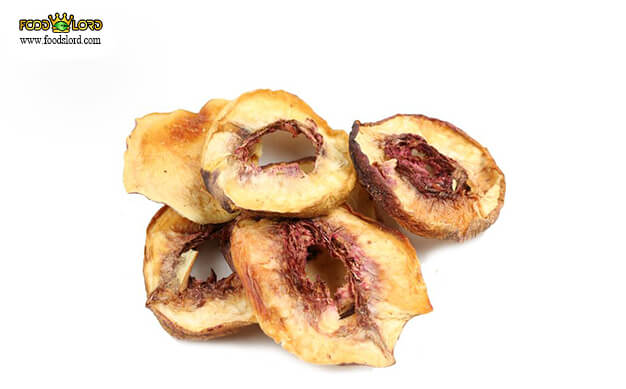
Ref:







